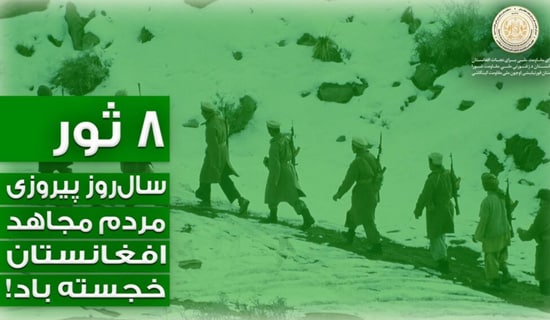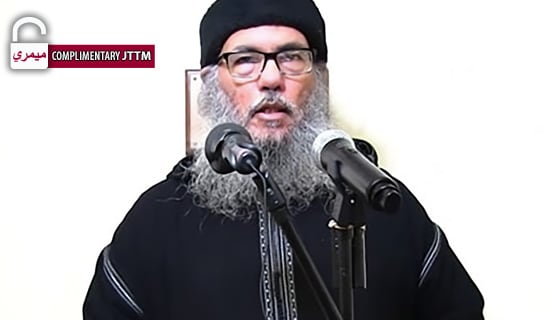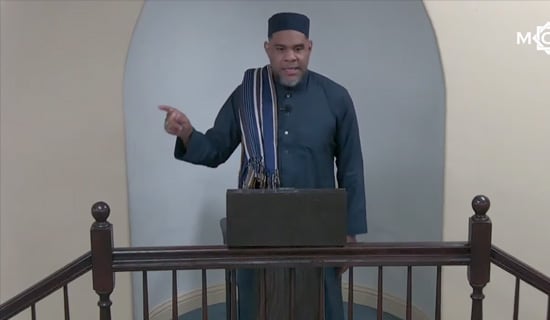A three-day symposium convened at Beir Zeit University, June 21-23, under the title "Palestine on a Crossroad - the Characteristics and Identity of the Palestinian Entity." The symposium, organized by the 'Arab Thought Encounter' and focused on political, economic and social aspects of life under the Palestinian Authority, brought the opposition of the Palestinian government's domestic conduct to the forefront. Sitting on the podium were many of the PA's political elite whose contributions to the discussion were surprisingly unorthodox.
Government Norms in the PA
The discussion throughout the three-day symposium focused on the lack of democratic norms in the PA. The Chairman of both the Palestinian National and the Central Councils, Salim Za'anoun surprised the participants on the first day, when he launched a fierce attack on the PA's executive conduct. Za'anoun who is generally viewed as Arafat's confidant, complained that the responsibilities of the executive, legislative, and judicial branches in the PA have not been made clear and as a result there are turf battles.[1] "If we don't put our own home in order, we don't really deserve a state. If there is no separation of powers and protection of powers, and if the foundations are no good, than nothing that we take from the European Union will benefit us. If we are not our own friend, do not expect others to be our friends." Za'anoun lamented that the current level of the Palestinian judiciary system is as low as it was in 1958, under Egyptian rule of the Gaza Strip.
Za'anoun then expressed hopes that the new Attorney-General, recently appointed by Arafat, "would not be intimidated by what happened to the previous one." The former Attorney-General Fayez Abu Rahmeh was led to resign after being discouraged by the PA's security apparatus and the Minister of Justice, Freih Abu Medein, who undermined his authority. "I hope the new Attorney-General can keep his job," added Za'anoun.[2]
The Chairman of the Palestinian Legislative Council, Ahmad Qurei' [also known as Abu 'Alaa] presented a more conservative approach attributing the lagging Palestinian democracy to the Israeli Prime Minister Netanyahu's three years in power that "crippled progress on essential issues of development."[3] Nevertheless, Abu 'Alaa demonstrated optimism and vowed that the future Palestinian State would be "nothing but democratic, and would be based on pluralism, the rule of law, and human rights."[4]
A much blunter position was heard from the Palestinian Minister for Parliamentarian Affairs, Nabil 'Amru who accused "everybody" of being "involved in permitting Arafat to maintain his autocracy".[5] However, 'Amru, who apparently does not fully realize the necessity of democracy to Palestinian society, went on stating that the biggest challenge for the Palestinian Authority is to find the middle ground between Arab Autocracies and Western Democracies.[6]
Minister 'Amru was not alone in criticizing Arafat's autocracy. The Director of the Independent Authority for Human Rights, Dr. Ali Al-Jarbawi, challenged Abu 'Alaa and others who blamed Israel for low democratic standards in the PA. "Sure, we have political and economic problems with Israel," he said, "but our institutions are nothing more than decor, power is in the hands of one man and there is no law and order." [7]
Former Minister of Labor, Samir Ghoshe, gave an account of his experience as a PA minister, "The Palestinian people were looking at us like we were a group of thieves... I resigned because I did not steal and didn't want to be a member in a gang of thieves."[8]
The Status of the PLO after the Establishment of the Palestinian Authority
One of the more heated debates revolved around the life expectancy of the PLO, in light of the fact that the PA functions more and more as the primary representative Palestinian body that also handles national Palestinian finances and funds. Despite the consensus that the PLO should continue to be the Palestinian representative body, some of the participants, led by the Head of the Political Committee in the PLC, Dr. Ziyad Abu 'Amru, claimed that due to the establishment of the Palestinian Authority - the PLO is dying. This issue has tremendous political significance since the PLO links the Palestinian Diaspora to the Palestinian entity in the West Bank and Gaza, and embodies the Palestinian demand for the "Right of Return."
Abu 'Amru predicted that the PLO would "die" and be completely replaced by the PA, before achieving the overall national Palestinian goals. "The PLO will end up playing a small and limited Diaspora-oriented role, similar to the one the Jewish Agency has in Israel...the PA has taken over all the functions of the PLO. It has created a situation of competition and duplications in finance, government, and parliament... When the state is established, the representative role of the PLO will come to an end."[9]
Sakhr Habash, a member of the Central Committee, was alarmed by this ominous forecast. "This is an attempt to kill the PLO. The PLO is still alive. It is our guarantee for national independence and the Right of Return," he screamed at Abu 'Amru.[10]
Abu 'Amru, nevertheless, had evidence for his thesis. He revealed that during the debate in the Palestinian Central Council in March of ’99 about whether to postpone the unilateral declaration of a Palestinian state, he told Arafat that he should declare the end of the Interim Period. "Arafat asked me: 'what about myself as the PNA's President-elect?' I told him: 'You are [still] the head of the PLO's Executive Committee.' But Arafat dismissed my argument."[11]
The concluding statement of the conference referred to the balance of authorities between the PA and the PLO: "The PLO should fulfill its full role, according to its charters and programs, until the goals of the Palestinian people are achieved with the establishment of its independent state, with Jerusalem as it capital, [until] the return of the refugees to their homeland, and [until] all features of the occupation are abolished...the PA is a field branch for the PLO..." [12]
SUPPORT OUR WORK

The Fatah movement was also criticized for backing the PA government at all costs. Sakhr Habash, as a member of the Fatah Central Council, had to respond to the claim that it was the Fatah movement that prevented a no-confidence vote at the PLC against the PA government. "It is not my fault" Habash said, "if the President has a clique at the PLC. He tells them to vote in favor of this and that, and they do. He tells them not to vote, and they don't. He is relying on the clique and not on those who struggled in the past." [13]
The PA's Security Forces and the Rule of Law
Failure of the PA's security apparatuses to adhere to the rule of law was another leading theme. Chairman of the Palestinian National Council, Salim Za'anoun admitted he was envious of Israeli adherence to the rulings of the Supreme Court: "Netanyahu had to respect the decision of the High Court and avoid closing the Orient House while we, the Palestinians, have more than 25 decisions of the High Court that have been violated by low-ranking offices [of the different Palestinian security forces]."[14]
Head of the Monitoring Committee of the PLC, Ahmad Khreisha publicly challenged the Head of the Political Department of the Palestinian Intelligence Apparatus, Colonel Muhammad Al-Masri by pulling out a list of names of "Palestinians arrested by the Palestinian police under the pressure of Israel and without charges."
Muhammad Muqbil, a Director at the PA's Ministry of Youth and Sports referred to the Palestinian Security Apparatuses as "armed gangs." Other members of the PLC accused the security apparatuses of stealing valuable artifacts from archeological sites in the West Bank and the Gaza Strip, arresting people without any legal basis and committing offenses without fear of punishment.[15]
In response, Colonel Al-Masri said, "if you had asked me two years ago to come, I wouldn't have done so. I would have said, 'who are you to accuse me?' But today I am here. I am listening to you. I want to learn from you how to avoid making mistakes in the future." [16]
Public Response
Although the blunt criticism of Arafat and his government was censored by the PA and appeared mostly in Jordanian and Israeli newspapers, one critic did appear in the Palestinian daily Al-Ayyam. Palestinian university professor, Ahmad Harb, criticized the critics. Dr. Harb mocked Minister 'Amru and others for being so "out of line" and so critical of the PA of which they are an integral part. "The Minister for Parliamentarian Affairs and the Chairman of the PLC bitterly criticize the lacking standards in the relation between the executive and legislative branches, while for the public they address they represent most this lack of propriety," writes Harb who continues, "on different occasions the Minister of Justice complains of "the lack of justice" and the dependency of the judicial system. The head of the negotiating team criticizes the progress of the negotiations and announces terms for their renewal, but then he renews and negotiates without his terms being met."
Dr. Harb does not see the mass of criticism expressed in the conference as a sign of democracy, but rather as a failure of the relation between the official and the citizen. "It is not expected of an official to go out of the official line and once again bore the citizen with his complaints, but rather work to solve the problems under his jurisdiction." [17]
[1] The Jordan Times, June 23, 1999
[2] The Jerusalem Times, June 25, 1999
[3] The Jordan Times, June 23, 1999
[4] Al-Sinara, June 26, 1999; similar optimism was expressed by the General Secretary of the Palestinian Cabinet, Ahmad Abd Al-Rahman, who said that, "even if democracy does not have the decisive word at the moment- it will in the future. " Ibid.
[5] Said Ghazali, www.amim.org
[6] The Jordan Times, June 23, 1999
[7] The Jordan Times, June 23, 1999. It is noteworthy that despite his general criticism, the Chairman of the Palestinian National Council, Salim Za’anoun, did not take part in the direct criticism of Arafat. "Allah belssed our people with a leader capable fo operating under all circumstances,"he said. Al-Hayat Al-Jadida, June 22, 1999.
[8] The Jerusalem Times, June 25, 1999
[9] The Jerusalem Times, June 25, 1999
[10] The Jerusalem Times, June 25, 1999
[11] Ibid
[12] Al-Ayyam, June 24, 1999
[13] The Jerusalem Times, June 25, 1999
[14] The Jerusalem Times, June 25, 1999
[15] The Jerusalem Times, June 25, 1999
[16] The Jerusalem Times, June 25, 1999
[17] Al-Ayyam, June 26, 1999




